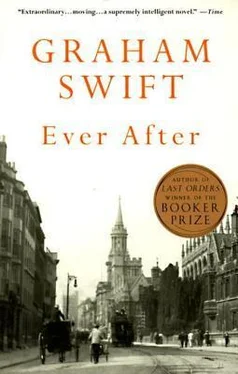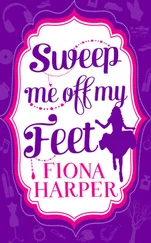… et mentem mortalia tangunt
Aeneid, I
These are, I should warn you, the words of a dead man.
Or they are at least — the warning stands — nothing more than the ramblings of a prematurely aged one. I have been in this place now barely a year, but I am fully aware from the inside, as I think the public is from the outside, of its effect of induced senescence. There are, these days, those sexy young studs of academe who attempt to go against the grain. But even they, it can be observed, when they reach a certain age — roughly my age, a little past fifty — begin to settle rather quickly into the lean and slippered pantaloon. They look about them at their venerable surroundings, at the privileges they possess, they take stock of their no longer galloping careers, and they decide, consciously or not, that true donhood, like the quality of fine wine, is inseparable from age.
It is something in the air here. Before they are sixty, they are emulating one of the many varieties: the crusty and cantankerous; the bald and bumbling; the silver-haired exquisite; the bespectacled and tousled distrait; the freewheeling eccentric; the wide-eyed, latter-day infant, helpless in all mundane matters but possessed of a profound understanding of Sanskrit. By seventy or eighty — and there is no reason, given the pampering they get, why they shouldn’t go on for decades — they are convinced they have reached their true flowering and that, whatever their status in their particular fields (though eminence may be assumed), they are, in themselves, rare birds, exceptional cases, worthy of living enshrinement.
(Potter, by the way, is pushing forty-eight.)
We are, of course, an endangered and thus protected species. If natural selection had had its nasty way, we should have been wiped out long ago, a fragile, etiolated experiment (I have slipped into the insidious “we”). Once, no doubt, when we stepped, blinking, out of our cloisters, the newfangled foibles of the modern city, not to say of the world beyond, would have seemed specious and temporary; our ancient walls would have seemed the true, real, permanent thing. But now it is those ancient walls which have become artificial and implausible, like a painstakingly contrived film set. It is everything beyond that is real. If hardly reliable. Out there, we are given to believe (twelve months, did I say? It feels like twelve years), the world is falling apart; its social fabric is in tatters, its eco-system is near collapse. Real: that is, flimsy, perishing, stricken, doomed. Whereas here …
But shouldn’t we dodos understand this?
The University naturally takes its own shrewd steps, as it has always done, to ensure its survival. But survival of the fittest? A few dubiously nimble brains in a few desiccated, enfeebled bodies? I had hardly been here a few weeks when I began to have a dream which I am sure all my fellow Fellows dream. Out there in the dark, in the “real world,” is a prowling, snarling lout, all tattoos and bared teeth. He too, like us, is social scrap, but without our preservation order. No privileges, no prospects, no pride, no compunction. Like many who do not have those things, he has plenty of brawn and spite, and one day, with a horde of his brethren, he is going to break through our precious, time-honoured walls and beat our estimable brains out.
But this vision does not trouble me so much now. Not now. If the Vandals are coming, the Vandals are coming. Death in such a fashion, deserved or undeserved, would of course be appalling. But death itself is another matter. The deaths of others have lately punctuated — shattered, overturned — my life. No less than three — I shall come to them all — in eighteen months. But only very recently, despite this forced familiarity, have I looked the beast itself hard in the face. Not just looked it in the face but wanted it to devour me. I am talking of that experience, given to few, of being returned to life from almost-death. I am talking, in my case, of attempted self-slaughter.
This is the real reason why I say I am prematurely decrepit. My recipe, you see, was at fault. These things (I know from example) can be well executed or hopelessly botched. I was found. They rushed me away, pumped me, thumped me, jump-started me, wired me to the latest gadgets. And the net result of all this was that I opened again these eyes which I thought to have closed for ever and began breathing and thinking for myself (though that phrase begs questions) once more.
But you can imagine the shock to the system. It is not as though my hair has turned white or I have been reduced to a haggard and wasted spectre. I recognise the face in the mirror. Or rather, I recognise that I have never truly recognised it. But I have certainly slowed down a bit. I certainly need to take it easy. I have, for the time being at least, the pitiful gait, the sad posture and the low reserves of an old man. I look more like a don. But, more to the point, I feel as though I have moved on , in some critical but indefinable way, from what I was before. I have left my former self, whatever that was, behind. I am changed.
What I do not feel is pain — I mean spiritual pain. I do not groan and weep to be restored again to the consciousness I had hoped to forfeit, I do not regard the failure of my attempt as a twist of ineffable cruelty. I simply feel as though I have become someone else. And I am not sure if I accept or resent the process. One part of me seems to have occupied a place of serene detachment. I feel like the ghost of Troilus at the end of Chaucer’s poem, which, ascending through the spheres of heaven (no, I did not have that famed experience of rising out of my own body and surveying it from the ceiling), looked down with dispassionate equanimity on the former scene of all his joy and sorrow. While another part of me — hence these ramblings — feels the forlorn urge to find and meet my former self again, secretly wondering, as it does so, whether the meeting will be happy or disastrous.
I am not me. Therefore was I ever me? That is the gist of it. A proof of all this lies before your very eyes. Or at least before mine, since you have no means of comparison and only my word to go on. But that is the point: these words , or rather the tone, the pitch, the style of them and consequently of the thoughts that underly them, are not mine. I have penned in my time — long ago — a thesis and an academic paper or two, but I have never begun to write anything as — personal — as this. Yet this way in which I write is surely not me . What would you call it? A little crabbed and sardonic? A little wry? A tendency to the flippant and cynical? Underneath it all, something careless, heartless? Is this how I am?
But these are minor matters, you say. What is important, what you are dying (excuse the phrase) to know, is what brought me to the pitch of staging my own death in the first place. I could get out of this by saying that since I am a different person now from what I was then (only three weeks ago), how can I possibly tell you? But it is not as simple as that. Perhaps these pages will eventually explain. Perhaps they will give me an explanation. I will only say, for the time being, that for a large part of my life, ever since my old English master, Tubby Baxter, made us read the play, I have imagined myself — surreptitiously, presumptuously, appropriately, perversely — as Hamlet. And you all know one of his tendencies.
Fifty-two, you will say, is a little old to be playing Hamlet, but the fads of adolescence die hard. If you knew me better, you might suppose that for much of my time, despite being for some years (things have come full circle) a professional exponent of English literature and having also a privileged link with the theatre, I would have had no use for this skulking, brooding figure. This is a roundabout way of saying that if happy men exist, I was for many years, for the best years of my life, a happy man. Yes, a happy man. But perhaps the pensive prince was always there, lurking in some morbid toy-box, a foil to the brightness of my days. And when the lights suddenly went out, less than two years ago, he popped up again with a vengeance — vengeance being another of his preoccupations.
Читать дальше












